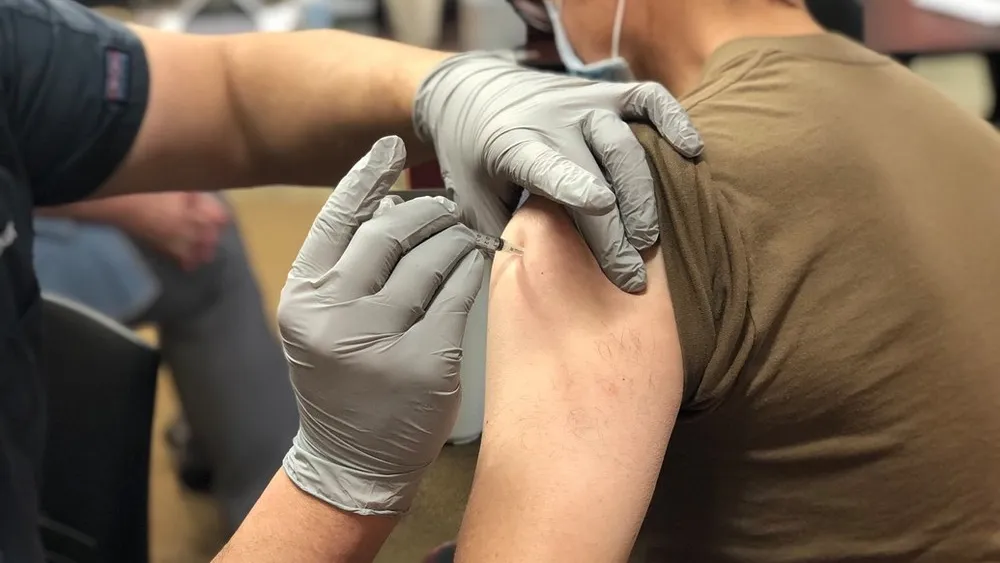Today's Medicine
Minimizing the Side Effects, Maximizing the Efficacy of the COVID-19 Vaccine
Published: June 2, 2021

By now, you’ve likely heard from your doctor, another frontline worker or a friend who’s received the COVID-19 vaccine. Some of them may have rather daunting accounts of the side effects they experienced while others noticed little to none.
The mere thought of being one of the “unlucky ones” – and being under the weather for a day or two –may be off-putting. But putting off the vaccine when it’s available to you is not the solution. Preparing for it is.
A Recap of the Side Effects
It’s been said, repeated and published countless times before, but here it is again: Experiencing any of the common side effects of the COVID-19 vaccine is a good thing! Those common side effects include:
- Injection site pain, redness and/or swelling
- Fatigue
- Joint and/or muscle pain
- Fever and/or chills
- Headache
- Nausea
- Swollen lymph nodes
These side effects – which may appear within a week of getting vaccinated and usually last between 24 and 48 hours – signify an appropriate immune system response, or signs that your body is building immunity.
That said, experiencing little to no side effects doesn’t indicate that the vaccine was less effective for you or that your immune response was inadequate. It also doesn’t infer that you were previously infected with COVID-19.
While most people have reported more side effects after the second dose of the mRNA vaccines (Pfizer-BioNTech and Moderna), and while many have reported similar side effects after the single-dose Johnson & Johnson vaccine, everyone is unique. And everyone’s response to the vaccine will be, too. There is no data that suggests age, build, gender, race or previous COVID-19 infection have any bearing on how intense a person’s side effects will be. So, generally speaking, there is no way of knowing how the vaccine might affect you.
Preparing for the Side Effects
There are certain things you can do prior to and after getting vaccinated that may help minimize some of the uncomfortable side effects. And rest assured: The following pieces of advice won’t hinder or lessen your immune response.
- You may take acetaminophen or ibuprofen. If medically appropriate, antipyretic or analgesic medications (acetaminophen and nonsteroidal anti-inflammatory drugs) may be taken for the treatment of post-vaccination symptoms. If you experience a fever for more than 48 hours after vaccination, consider getting tested for COVID-19.
- Apply a clean, cool wet cloth. If you’d prefer not to medicate, applying a cool cloth or compress to the injection site can help alleviate arm pain and swelling. And dress lightly if possible. Constricting layers can worsen your discomfort.
- Avoid excessive amounts of alcohol. Alcohol won’t decrease your immune response, but it may lead to symptoms similar to those associated with the vaccine. So, as a word of caution, it’s best to avoid heavy drinking prior to and after vaccination.
- Stay hydrated. Be sure to drink plenty of fluids before and after vaccination. Dehydration can exacerbate any side effects that you may encounter.
- Avoid strenuous activity. It’s a good idea to use and exercise your vaccinated arm frequently. But overall, you may want to take it easy for one or two days following vaccination. Overdoing it can weaken your immune system – and right now, the goal is to strengthen it.
The COVID-19 vaccine does not contain eggs, preservatives or latex. But if you’ve experienced an immediate allergic reaction to any vaccine – even if not severe – talk to your primary care provider before getting vaccinated against COVID-19. And consider having an epinephrine pen available in case of anaphylaxis.
Maximizing Immunity
Unless your provider recommends otherwise, it’s critical that you keep your appointment for the second dose of the COVID-19 vaccine – even if you experienced side effects following your first dose. Receiving the second dose is the only way the vaccine’s efficacy can be ensured – and the only way you can maximize your immunity to COVID-19.
By the time you receive the second dose, your body will already have some of the antibodies it needs and is able to respond more quickly. This could help explain why the second dose tends to be more intense for some people. But knowing what to expect and how to prepare can help keep you comfortable while giving you the peace of mind that you’re protecting not only yourself but also those around you.
Vaccinate with confidence! That includes adolescents, as the Pfizer-BioNTech vaccine as been approved for individuals as young as 12. Pregnant and breastfeeding women should also consider vaccination, as the American College of Gynecology recommends that these groups of women have access to the vaccine.
Talk to your health care provider if you have more questions. But know that we're all still in this together. This is still #ourbestshot at putting an end to this pandemic.
More Resources
- Check out the FAQs surrounding the COVID-19 vaccine.
- Brush up on the vaccine recommendations for women who are pregnant, nursing or trying to conceive.
- Read similar articles regarding today’s medicine.


